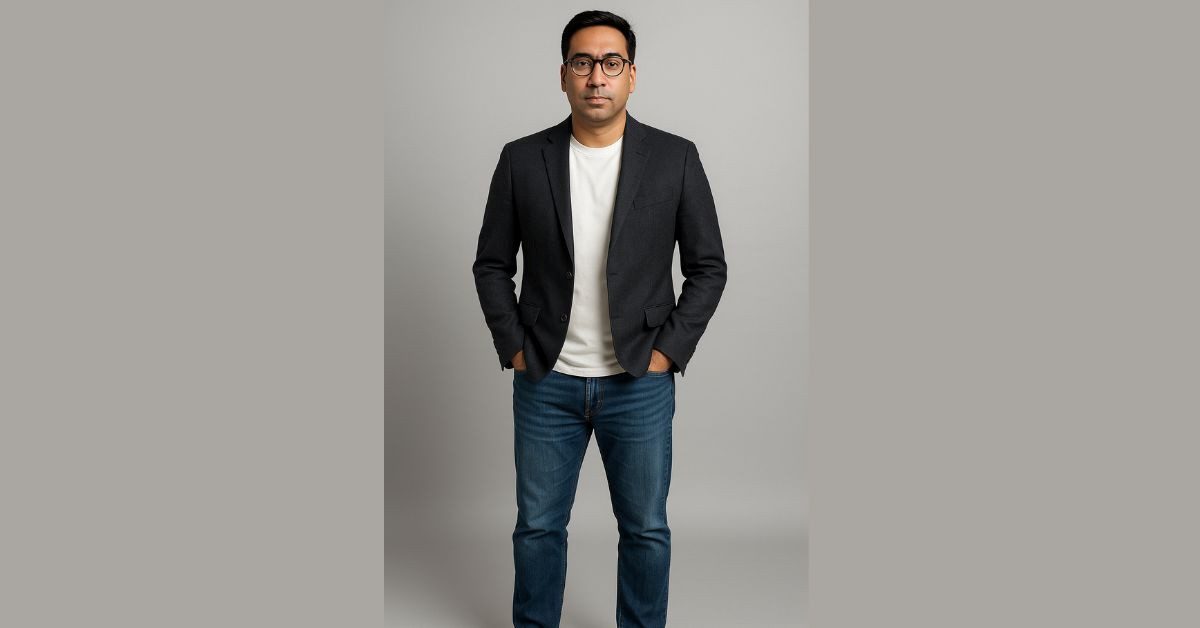Suresh: ‘A few years ago, success meant achievement. Now it means peace, integrity and presence’
SINGAPORE — Suresh Minhas has spent nearly 20 years managing some of Asia’s largest real estate projects, totaling more than five million square feet of mixed-use development across Singapore and India. His portfolio includes Grade A office towers, retail complexes and hospitality spaces for blue-chip developers such as Lendlease and Xander Investment Management.
However, ask the 42-year-old entrepreneur what separates successful developers from those who struggle, and he does not talk about deal making or market timing. He talks about structure, emotional discipline and how a person handles the things nobody sees.
“In my career, I’ve found real satisfaction in shaping a product from the ground up — understanding what people need, and balancing cost, quality, and timing,” said Suresh, who also co-founded a property redevelopment venture transforming older landed homes into modern residences in Singapore.”
Suresh is also a Juris Doctor candidate at Singapore Management University, studying criminal law, contracts, property law and constitutional procedure. He said those subjects have sharpened his approach to business decisions and stakeholder negotiations.
His career path through real estate has been marked by increasingly complex projects and an evolving understanding of what makes development sustainable. From those experiences, he has distilled three core principles he now applies to everything he builds.
Lesson One: Systems Outlast Intensity
Suresh entered real estate development in 2012 after completing an MBA at INSEAD. He joined Lendlease as development manager for the Paya Lebar Quarter office component, a 900,000-square-foot Grade A office tower that was part of a 1.67 billion Singapore dollar mixed-use development in the city’s eastern corridor.
The project required coordinating land acquisition, office leasing, valuation, design development and liaison with landowners, bankers and government agencies. All of it moved simultaneously across a multiyear timeline.
The team successfully leased 85% of the office space six months before completion, working with tenants such as SMRT, Great Eastern, CBRE, and JLL. This achievement wasn’t driven by aggressive sales tactics, but by strong planning and clear communication throughout the process.
Earlier, he managed the 330,000-square-foot office tower at Lendlease’s Jem development in Jurong East and leased the entire building to Singapore’s Ministry of National Development on a 30-year lease.
“My background in finance, coupled with strong interpersonal skills, means I am able to identify business needs, conduct detailed financial analysis, conceptualize effective property advisory and asset management solutions, and engage effectively with different groups of people to consistently deliver tangible business results,” Suresh said.
From 2018 to 2021, as vice president of development and asset management at Xander Investment Management, he oversaw a 1.8 million-square-foot mixed-use project that incorporated retail, hospitality and lifestyle spaces across India. The role required navigating multiple regulatory environments and managing diverse stakeholders across several cities.
Today, his redevelopment business purchases older landed homes in Singapore, demolishes them and rebuilds modern residences for resale. The work demands technical expertise across land title issues, zoning rules, building approvals, environmental compliance and sale contracts.
“Running these businesses taught me how powerful and necessary law is in everyday commerce,” Suresh said. “Every contract, permit and transaction carries legal meaning.”
His legal studies at SMU have reinforced that idea. “Legal training has refined the way I see the world. It has strengthened my sense of fairness, sharpened my reasoning and grounded my decisions in principle,” he said.
For developers entering the field, Suresh emphasizes that sustainable success comes from building repeatable processes rather than working harder or moving faster.
Lesson Two: Emotional Regulation Is a Professional Skill
Suresh’’s approach to development has been shaped as much by personal discipline as by technical training. Since 2020, he has been active in the Brotherhood Family Violence Support Group at Thye Hua Kwan, a peer support program where men work to develop empathy and emotional resilience.
What began as his own participation has evolved into facilitation work. He now helps newer participants navigate the same structured accountability process he completed.
“In therapy I learned to spot early physiological cues and down-regulate before anger runs the show,” Suresh said. “I believe teaching these micro skills widely, especially to boys and fathers, prevents harm long before courts get involved.”
“I do not rely on willpower. I rely on structure, routines, reflection, breathing techniques and accountability partners who keep me honest,” he said. “These are habits I have practiced every day for years.”
For Suresh, the connection between personal discipline and professional performance is direct. Development projects involve constant pressure — permit delays, cost overruns, contractor issues and market shifts — and how a developer responds to those pressures determines outcomes.
“People who work with me now, in my property development business, see a calmer, more deliberate person,” he said. “I do not shout. I problem-solve. I have learned that true strength is measured not by how forcefully you react but by how quietly you respond.”
Lesson Three: Trust Is Built Through Consistency
Suresh began his career in 2007 at Credit Suisse after earning a degree in accountancy from Nanyang Technological University. The bank’s graduate rotation program taught him how large financial institutions assess risk, allocate capital and navigate regulation. Those skills proved foundational when he moved into development.
The most important lesson from those early years, he said, was not technical. It was understanding that credibility accumulates slowly through consistent conduct, not through individual achievements.
“I know trust is built through consistent actions,” Suresh said. “My focus is on showing up every day, doing the work, and proving that I’m committed to serving this community the right way.”
Today, as both a business owner and a law student, Suresh applies that principle everywhere. In his property business, it means clear contracts, ethical partnerships and transparent dealings. In his studies, it means showing up prepared and engaged. In his family life – he is married with a young son – it means being present and accountable.
“I want to focus on peace, purpose and family,” he said. “My biggest goal is to be present for my wife and my son, to give him stability, empathy and the kind of guidance I did not always have growing up.”
His wife, he said, has been central to that focus. “She is practical, patient and quietly strong. She does not need to say much. Just watching how she carries herself reminds me what real composure looks like. She taught me that love is not about perfection. It is about presence, about showing up when things are hard.”
Building for the Long Term
These days, Suresh measures success differently than he once did. The metrics are no longer about project scale or financial return. They are about integrity, consistency and whether the work aligns with who he wants to be.
“A few years ago, I would have answered this question in terms of achievement, promotions, property deals, financial milestones and more money,” he said. “But life has a way of recalibrating what really matters. Today, success for me is about peace, integrity and presence.”
His professional goals remain ambitious. He wants to continue growing Magic Homes and his redevelopment company, building homes that people are proud to live in. But he is equally focused on running those businesses with the discipline and fairness that his legal education has reinforced.
“I want to run my businesses with the discipline and fairness that my legal education has given me, clear contracts, ethical partnerships and transparent dealings,” Suresh said.
For other developers and entrepreneurs navigating complex projects under pressure, his advice is direct: build systems, manage your own reactions and understand that reputation is shaped by how you handle challenges, not by how you celebrate success.
“At 42, I no longer chase perfection,” he said. “I am focused on building a life where my son grows up seeing what accountability and kindness look like in practice. If my future is built on that foundation, I will consider myself successful.”
Read More From Techbullion



































